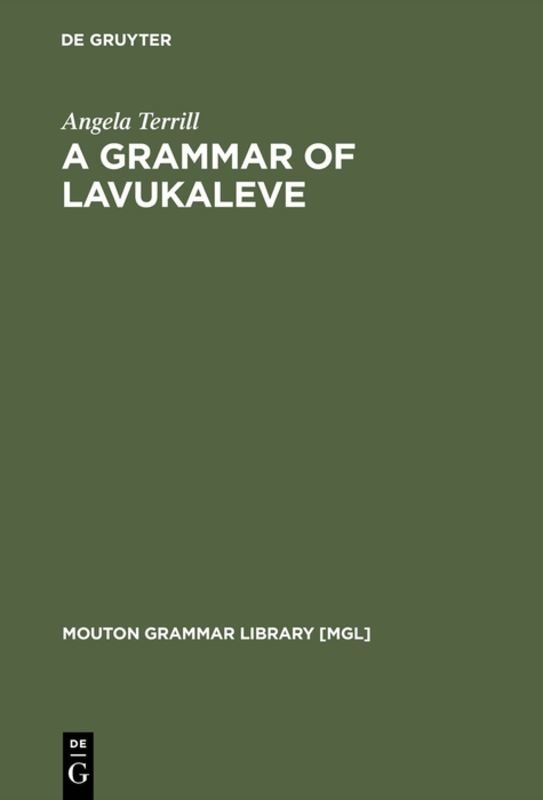Lavukaleve is a Papuan Language spoken on the Russell Islands in the Central Province of the Solomon Islands. The phonology and morpho-phonology of Lavukaleve are described, as well as arguments adjuncts, the Lavukaleve predicate structure (including predicate types and core participant marking, the agreement suffix, focus constructions, tense, aspect and mood, word-level derivation, complex predicates), interclausal syntax, and the Lavukaleve discourse organisation. The book includes a list of affixes, a list of lexemes, and an appendix with Lavukaleve texts. The data used in this work was collected by the author during five field trips.


